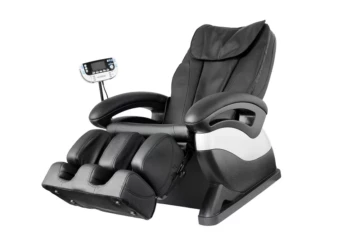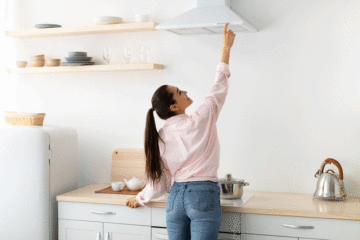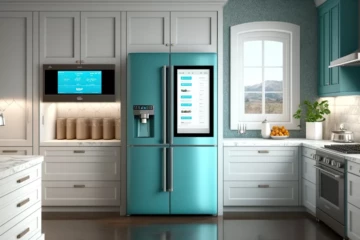While not extremely common, mice can seek refuge in appliances, especially those in or near the kitchen. Appliances provide warmth, shelter, and easy access to food sources, making them attractive hiding spots for mice.

How to Get Rid of Mice in Your Appliances?
Discovering mice in your appliances can be both unsettling and unhygienic. These critters can damage your appliance components and pose health risks due to their droppings and the potential for disease transmission. If you face this issue, addressing it promptly and effectively is essential. This article will discuss what to do if you get mice in your appliances, from prevention strategies to steps for safely removing them.
Summarizing general information about rodent infestations in residential houses:
| Aspect | Information |
|---|---|
| Common Problem | Rodent infestations are common in residential homes across North America. |
| Prevalence | Prevalence varies by region and season, with an increase in indoor rodent activity during cooler months. |
| Health Concerns | Rodents can carry diseases and contaminate food and surfaces, posing health risks to residents. |
| Damage | Rodents can cause structural damage by gnawing on wires, insulation, and wooden structures. They may also damage food containers and chew through walls and pipes. |
| Signs of Infestation | Common signs include droppings, gnaw marks, scratching or squeaking noises in walls or ceilings, and evidence of nesting materials. |
| Prevention | Prevention measures include sealing entry points, maintaining cleanliness, using traps or bait stations, and conducting regular inspections. |
Please note that this table provides general information, and the prevalence and specific details of rodent infestations can vary widely depending on location and other factors. For precise and up-to-date statistics in your area, consult local authorities and pest control agencies.
Prevention is Key
- Seal Entry Points: Mice can enter your home through small cracks and openings. Inspect your home for potential entry points and seal them with caulk, weatherstripping, or wire mesh.
- Keep a Clean Kitchen: Mice are attracted to food sources. Store food in airtight containers, promptly clean up crumbs and spills, and secure trash cans with lids.
- Regular Cleaning: Regularly clean your appliances, especially those in the kitchen. The scent of strong cleaning agents can deter mice.
- Pest-Proofing Appliances: When installing or replacing appliances, consider models with sealed or inaccessible spaces, making it harder for mice to nest inside.
Identifying the Problem
- Unusual Noises: If you hear scratching, rustling, or gnawing sounds coming from your appliances, it’s a sign that rodents might be inside.
- Foul Odors: Mice leave behind a distinct, unpleasant odour. Investigate further if you notice a musty or urine-like smell around your appliances.
- Droppings: Mouse droppings are tiny and resemble dark grains of rice. Check around and inside your appliances for these telltale signs.
Steps to Address the Issue
- Safety First: Before dealing with mice in your appliances, ensure you have the necessary safety gear, including gloves and a mask. Mice can carry diseases that can be transmitted through their droppings and urine.
- Unplug the Appliance: Turn off and unplug the affected appliance to ensure your safety while working on it.
- Locate the Nest: Carefully inspect the appliance to find the mouse nest. Common hiding spots include behind the refrigerator’s compressor, inside ovens, and beneath stoves.
- Remove the Mice: Using gloves and a mask, carefully remove the mice and dispose of them in sealed plastic bags. Be cautious not to touch the mice directly.
- Clean Thoroughly: After removing the mice, thoroughly clean the affected appliance and the surrounding area. Use a disinfectant to ensure no traces of urine or feces remain.
- Professional Assistance: If the infestation is severe or you are uncomfortable handling it yourself, consider hiring a professional pest control service to handle the issue.
Preventing Recurrence
- Maintain Cleanliness: Continue to keep your home clean and free from food sources that might attract mice.
- Regular Inspections: Periodically check your appliances for signs of rodent activity. Early detection can prevent a full-blown infestation.
- Sealing Cracks: Regularly inspect your home for new cracks or openings and seal them promptly.
- Mouse Traps: Consider placing mouse traps in strategic areas around your home as a proactive measure.
Choosing a Professional Appliance Service for Peace of Mind
Discovering mice in your appliances can be a distressing experience, but with prompt action and preventive measures, you can resolve the issue and prevent it from happening again. By following the steps outlined in this article, you can ensure a clean, safe, and mouse-free home. Remember that if you’re unsure about handling the situation, it’s always a good idea to seek professional assistance to address the problem effectively and safely.
Top Frequently Asked Questions
Are mice in appliances a common problem, and why do they choose appliances as hiding spots?
What health risks are associated with having mice in your appliances?
Mice can carry diseases such as hantavirus, salmonella, and leptospirosis. Their droppings and urine can contaminate your appliances, posing health risks if not properly cleaned and sanitized.
How can I prevent mice from entering my appliances in the first place?
Preventing mice involves sealing entry points in your home, keeping your kitchen clean, and using airtight food containers. Additionally, consider pest-proof appliances and regular inspections to detect potential infestations early.
What should I do if I discover mice in my appliances?
If you find mice in your appliances, unplug the affected appliance, safely remove the mice, and clean the appliance and surrounding area thoroughly. It’s essential to wear protective gear and follow safety precautions.
Can I handle a mouse infestation in my appliances myself, or should I call a professional pest control service?
You can handle a small infestation yourself, but for severe or recurring problems, it’s advisable to seek professional help. Pest control experts have the expertise and tools to address the issue effectively and safely.



